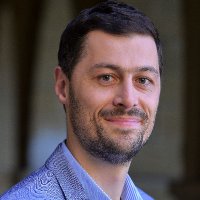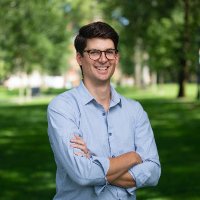
CISAC & on Bluesky @stanfordcisac.bsky.social
@stanfordcisac
Stanford's Center for International Security and Cooperation produces knowledge to build a safer world and trains the next generation of security specialists.
ID: 150481419
http://cisac.stanford.edu/ 01-06-2010 01:43:04
11,11K Tweet
14,14K Followers
1,1K Following

New research from Patrick Hulme shows presidents often act alone in military interventions not b/c Congress is weak, but b/c lawmakers choose to avoid blame while quietly supporting action. The “imperial presidency” story misses the real dynamic. Read more⤵️ cambridge.org/core/journals/…

🚨 JUST IN: Time for Iran to make a no-enrichment nuclear deal By Siegfried Hecker and Abbas Milani In Bulletin of the Atomic Scientists thebulletin.org/2025/07/time-f… #IAEA #Iran #Irannucleardeal #Irannuclearprogram #enrichment #Israel #JCPOA #Trump

"You cannot afford to do without your women soldiers. They are an inherent part of the U.S. armed forces, and out of necessity, they will be into the future," writes William J. Perry Lecturer Rose Gottemoeller for RealClearDefense realcleardefense.com/articles/2025/…


"The notion of a singular AI race between the United States and China fails to capture the true complexity of the rivalry unfolding today," write CISAC senior fellow Colin Kahl and Jim Mitre in their latest article for Foreign Affairs. foreignaffairs.com/united-states/…

As the global system fluctuates, CISAC & on Bluesky @stanfordcisac.bsky.social's Colin Kahl joins Chicago Council on Global Affairs to share his thoughts on how changes in U.S. strategy is both driving and responding to those changes. ow.ly/XE3m50WoPjc




Our final day of #SummerSeminar2025 featured conversations with Belfer Center's Bob Zoellick and CISAC & on Bluesky @stanfordcisac.bsky.social's Jim Goldgeier, along with a discussion on academic publishing and public engagement led by Johns Hopkins SAIS's Frank Gavin and Texas National Security Review's Ryan Vest, PhD.








In a new article for the Journal of Conflict Resolution, CISAC affiliate Lauren Sukin & colleagues examine data from 24 countries finding early support for the US in the Russo-Ukrainian war came largely from approval of its restrained aid to Ukraine journals.sagepub.com/doi/10.1177/00…



"Salt Typhoon was more than a one-off intelligence success for China. It reflected a deeper, troubling reality," writes Payne Distinguished Lecturer Anne Neuberger in her latest for Foreign Affairs. foreignaffairs.com/china/china-wi…